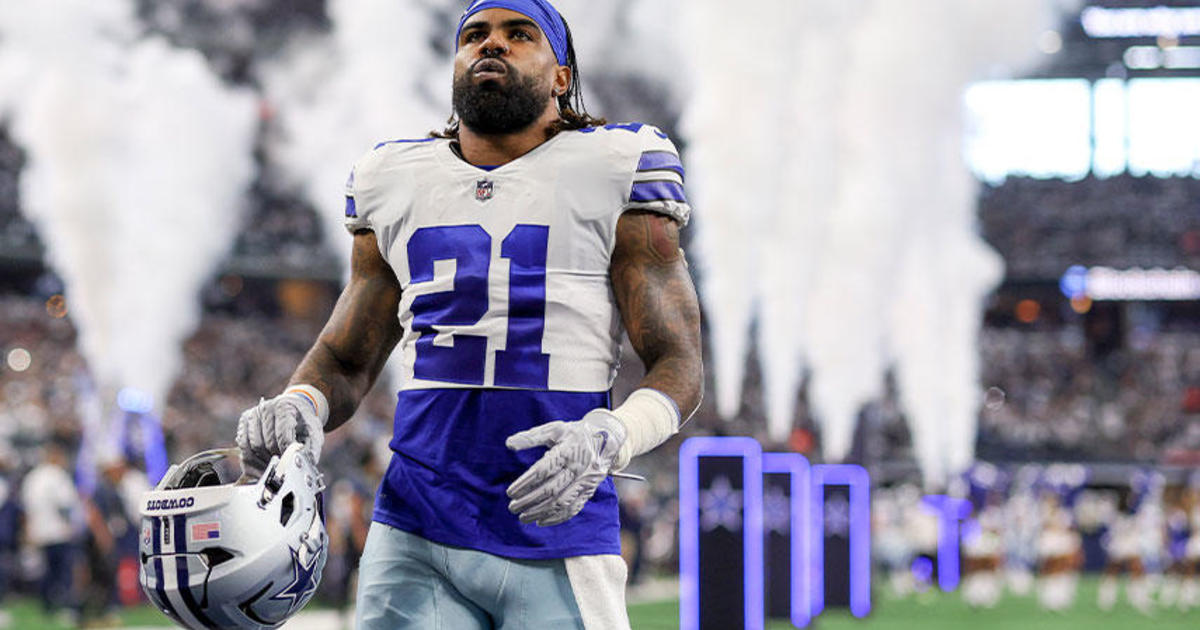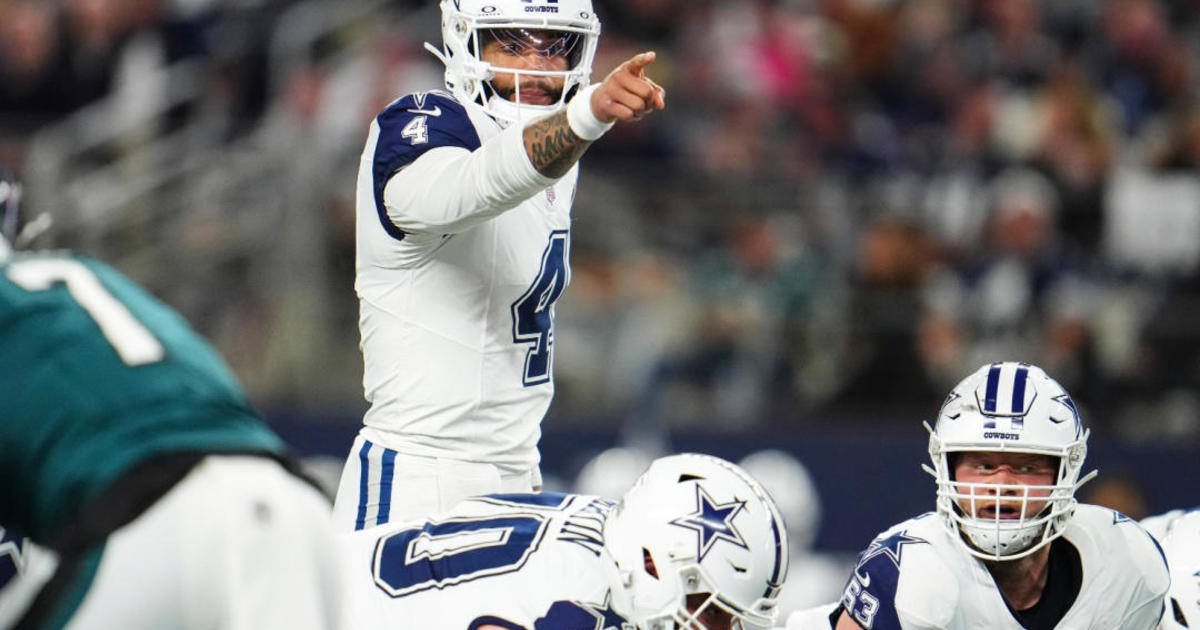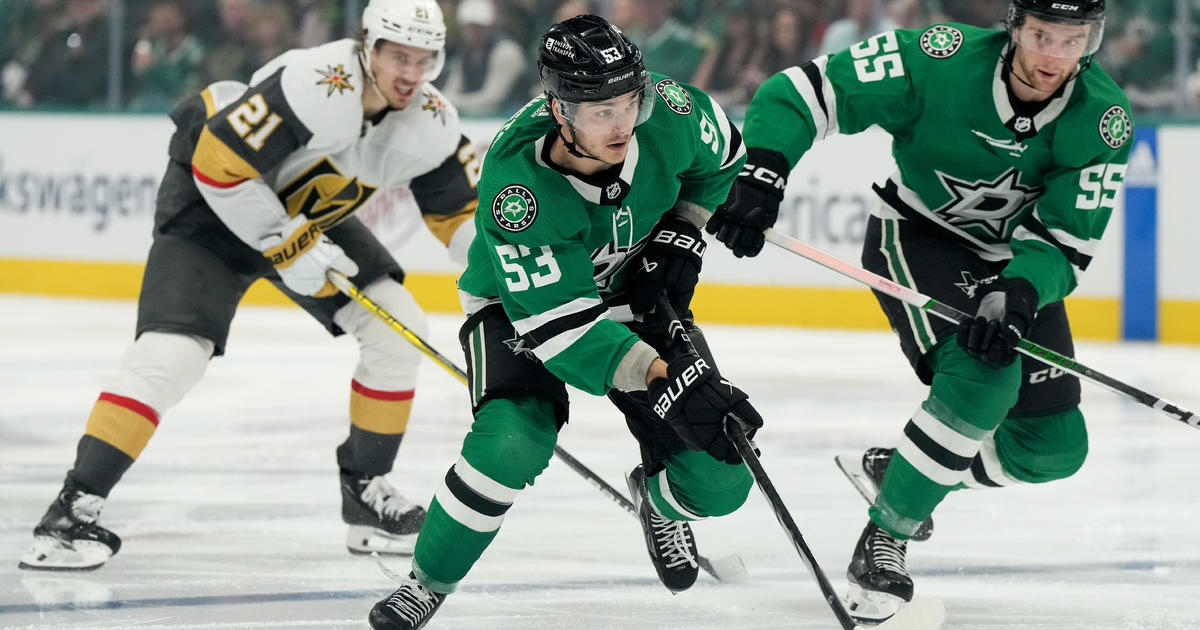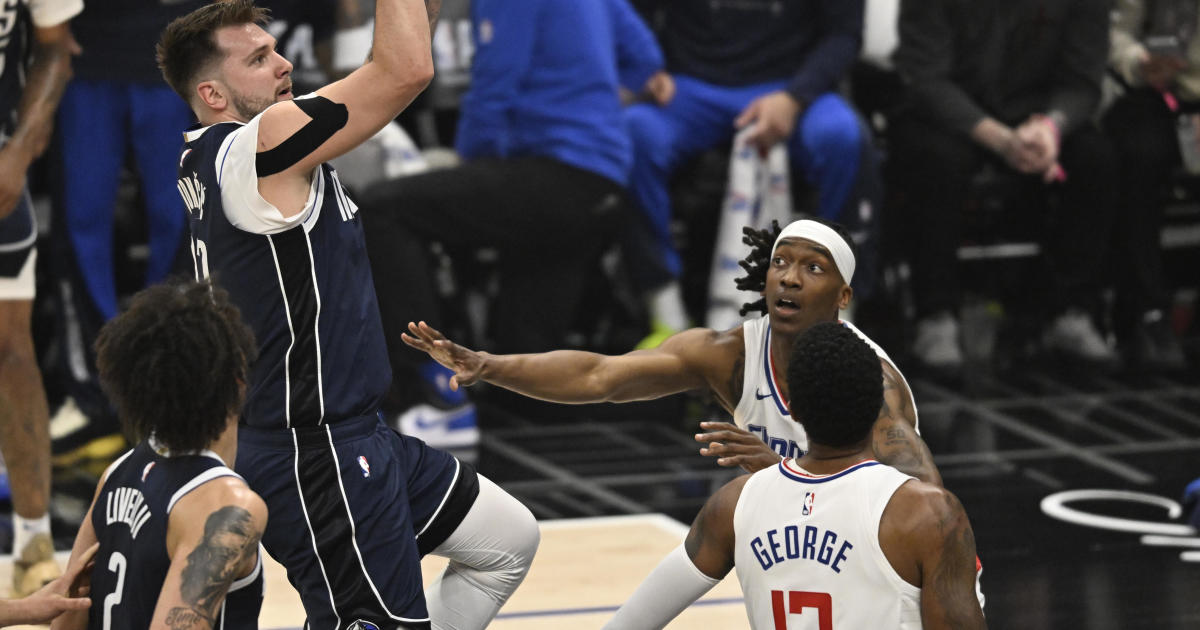Do The Cowboys Need To Be 'Super' In The Final 2 Games?
Follow The Fan: Facebook | Twitter
FRISCO (105.3 THE FAN) - "Rest vs. Rust vs. Records.'' That's the next debate for the Dallas Cowboys, who have clinched everything there is to clinch in the NFC on a path they hope guides them to the Super Bowl in Houston. The early lock-up, though, leaves them with two "meaningless'' regular-season games left to play — and decisions to make regarding how to play them.
Coaches love to talk about "momentum,'' and players obviously love to gather "milestones,'' yet "health'' is a far more important factor. And yes, behind the scenes at The Star in Frisco, that's true even as coach Jason Garrett, on the record, said, "'We have a lot to play for.''
A more frank way of addressing the conundrum comes from NFL rushing leader Ezekiel Elliott, who said about his shot at breaking Eric Dickerson's rookie record, "It would be special. But I can think of something more special than that."
But … is there a risk for a Super Bowl hopeful in losing late-season games? Not especially.
The 2009 Saints and the 1967 Packers stand out as two examples of teams that got hot after the regular season — when it really matters. Those Saints lost their final three regular-season games and those Packers lost their final two, but both went on to win the Super Bowl.
A total of 11 of the 47 Super Bowl champions lost their final regular-season game, and that number seems like evidence against losing … except that some of those teams needed to win to get advantageous position or even to just get in; the 2016 Cowboys do not. And of course, this math doesn't include all the hundreds of times that a team won its final regular-season games but failed to win the title.
So the eventual Super Bowl winners in the last 10 years are 7-3 in their collective final regular-season games. But that shouldn't be a surprise; as the cream of the NFL crop, they should win more than they lose.
Therefore, just as notable is what happens to the "cream of the crop'' in their final three games. To cherry-pick a bit by starting with the 2009 Saints: In the last six years, the eventual champs, in their final three games, are a combined 13-10.
Hardly overwhelming enough evidence to suggest that the Cowboys pull out all the stops on Monday against the visiting Lions or in Week 17 at Philly.
Dallas, like every other team, has injury concerns. Tyron Smith, Tyrone Crawford, Tank Lawrence, Orlando Scandrick and Barry Church are among the many standouts who could use time off. The Cowboys have other wrinkles involved, too, including whether to let Tony Romo knock off some rust in mop-up duty of rookie QB Dak Prescott, something they are presently disinclined to do.
And then there is the issue of records and individual glory, and it would be nice if it all came together the way it did for Jimmy Johnson's Cowboys in the first Super Bowl of that era.
Emmitt Smith needed a big game in the final regular-season game against the Bears to win the 1992 rushing title, and maybe "momentum'' was a consideration, too. So Emmitt and Troy Aikman and the regulars started. But with 11 minutes to go in the third quarter, Smith had the milestone, and retired to the sideline with 131 yards on 20 carries. Fullback/halfback Tommie Agee totaled nine carries. And Curving Richards had 13. Yes, the Cowboys somehow had 44 rushes along with 31 passes in a game they'd win, 27-14 — but a game made memorable because Curvin committed two of Dallas' four fumbles and was cut by Jimmy the next day, axed from the team's playoff roster.
"I'm never happy with sloppy play,'' Jimmy said after that game. "I don't care what the score is or who the opponent is. We won 13 games this year. But a 13-win season won't mean anything if we don't go on from here.''
It was true then and it's true now. Maybe a dramatic roster move lit a fire, or maybe the 1992 Cowboys were already motivated and talented enough to go onto win the Super Bowl. Maybe winning that last game and getting a rushing record mattered … or maybe it didn't.
(©2016 CBS Local Media, a division of CBS Radio Inc. All Rights Reserved. This material may not be published, broadcast, rewritten, or redistributed.)



